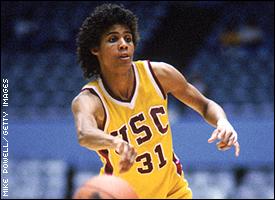A guy with a guitar and a few chords can sound kind of halfway decent without a lot of effort. Not great, but not awful.
This is not the case with steel drums. Steel drums take practice.
Many steel drums, a whole band’s worth of them, take even more. Exponentially more.
And you are all apparently very dedicated to the cause, showing up on Wednesday afternoons for the entire hour--maybe longer--of my writing class.
One the first day, we were charmed. We all laughed when we had to shout to be heard and then suddenly the music stopped and we were still shouting. Anthony spoke up, I swear, just because he wanted to shout in class and it was ok.
But every day, the wall thinned, as if your music, the off tempo beat of that one drummer who just could not seem to get it right, shaved layers of plaster off so that, by the 4th week, we could hear the clatter of the drum sticks against the floor. We could hear the director clear his throat.
These became writing days. We would spend a few minutes talking, asking questions, but there was little need to try to have a conversation. Maybe we could do small group work, if they huddled together in two’s and three’s. But mostly we wrote.
Anthony wrote about politics. Barack Obama was running for election and though he appreciated what it meant to have an African American president, he didn’t like him. He was torn, proud and confused at the same time. Nicole wrote a lot about coming to school, leaving her family in Columbus. Two hours away. On Thursdays she tells herself not to go home, to stay on campus for the weekends; she’ll make more friends. On Fridays she’s in her car headed south on 71. Her own bed. Her mom’s spaghetti. The familiar laundry soap.
One day, Dolores--who is in her 60’s and decided to go back to school, she loves being around “the kids”--isn’t there. Two days later I get an email from admissions that she has died. I find out it was an aneurysm. As the students enter the room, they can tell. Something’s wrong. We hear the drummers laughing softly.
We sit in a circle and I tell them what happened. Some get a little teary. Today is not a day we will work. I tell them they can stay and write if they want. They do. They pull out their notebooks and laptops and write poems, journal entries, letters. We look at her chair a lot. At first, we do it shyly, but then we just stare. Every once in a while, someone says, “Wow,” or “I can’t believe it.”
The drums pick up a bit. You’re sounding better now. The one guy, who couldn’t seem to get it, makes it all the way through. When they are done with the song, they cheer for themselves. A first. A good day.



















